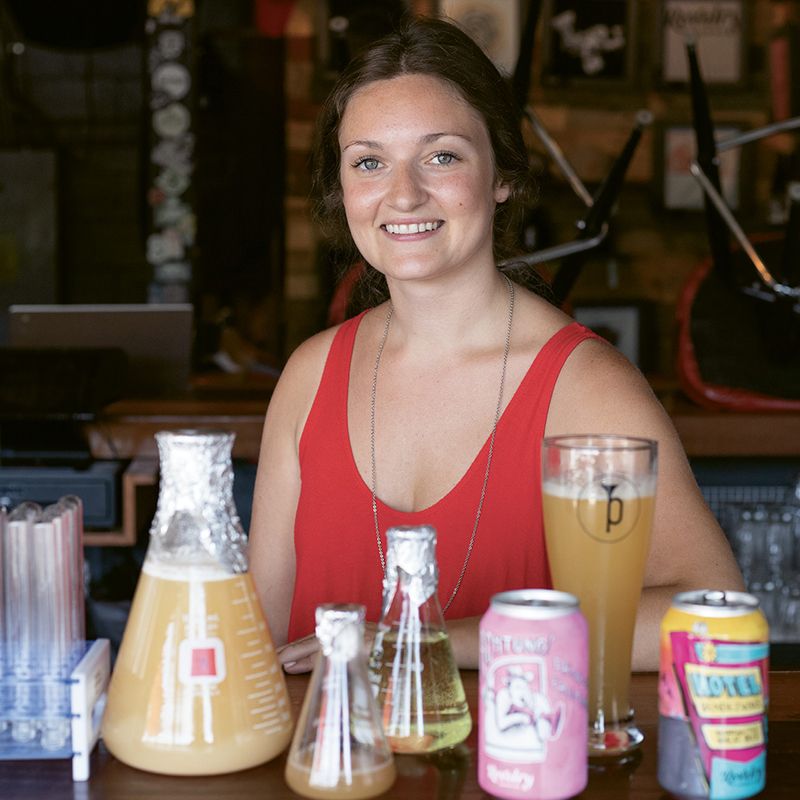Revelry Brewing’s lab manager and resident “Yeast Beast” schools us on the science behind beer

CM: You’ve had a nontraditional career path in science. What led you to your position at Revelry?
NS: I grew up in Massachusetts and got my bachelor’s degree in chemistry from the University of Hartford. After I graduated, I worked on the science side of the medical marijuana industry. At the time, there were a lot of gray areas between state versus federal laws, and I didn’t want to just sit around and wait for the industry to catch up. So I took a leap of faith and moved to Charleston, where I was lucky enough to meet Ryan Coker, head brewer at Revelry Brewing Co. I felt like beer chemistry was something I could totally put my brain into, so here I am.
CM: As a chemist, did you ever expect to be working at a brewery?
NS: When I was growing up, I had a family friend who was a flavor chemist for Budweiser. I always thought that was so cool. It made me realize that I could stick with chemistry but didn’t have to work for some pharmaceutical company.
CM: How does science influence the brewing process?
NS: Brewing is science—and brewers are, essentially, scientists. I work in tandem with the brewers at Revelry, and I have the privilege of using the data they provide me to draw further conclusions on how we can improve our beer. There are a million different variables in the process, from brewing itself to fermentation and beyond. We’re constantly working to achieve consistency and quality. Those are our top goals.
CM: So, in layman’s terms, how do you create different styles and flavors of beer through chemistry?
NS: For all our beers—hefeweizens, pilsners, cream and pale ales, or IPAs—we use the water as seasoning, if you will, to bring out the best in each flavor profile. Different ions at varying concentrations in the water help complement certain features of a beer. So if we’re brewing, say, a malt beer, we’ll want to increase some ions, and decrease others, to accentuate the maltiness.
CM: As lab manager, what does a day at work look like for you?
NS: I spend a lot of time in an actual lab—or my “nerd hole,” as I call it. Every day, I pull samples from each of our beers. Then, I collect a specific gravity reading and a pH reading—those two pieces of data are nice windows into monitoring the fermentation process. I do a cell count on the yeast to see if it’s viable, healthy, and ready to ferment. I also do microbiological tests on the beer to make sure we haven’t picked up any contamination. Every day is different, and that’s something I love.
CM: What about taste tests?
NS: Sensory tests are very important, too, for all of us at the brewhouse. We’re always tasting everything. The data tells you a lot, but if the beer doesn’t taste good, then what’s the data worth?
CM: What do you enjoy most about this field?
NS: I feel really grateful to have the opportunity to work in craft beer, especially in Charleston. There are upwards of 30 breweries now in the county, so it’s exciting. There are always new challenges, and that’s what I thrive on.
CM: What else do you hope to accomplish in the craft beer world?
NS: Along with helping Revelry continue to grow, eventually I’d love to help brewers nationwide with quality control. That would be a pretty awesome next step.
Photographs by (Steinhilber) Lizzy Smith, (Farmers Market) Ruta Smith, & courtesy of (Dog, Beer, & Label) Revelry Brewing Co.